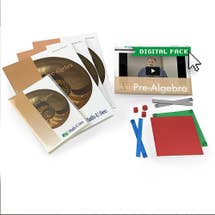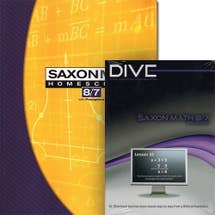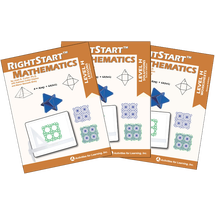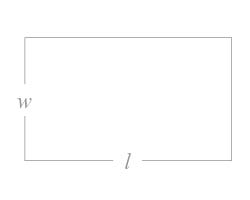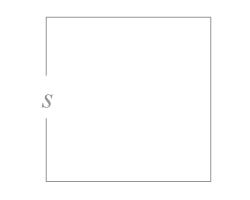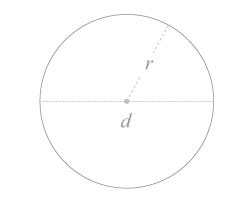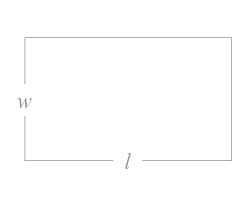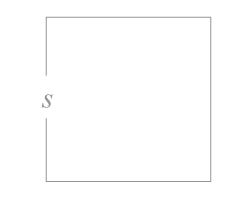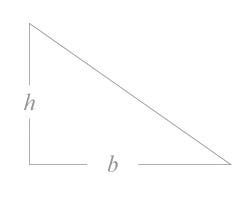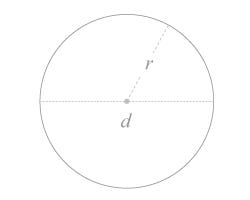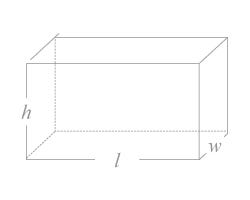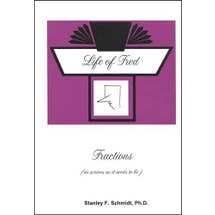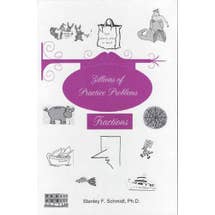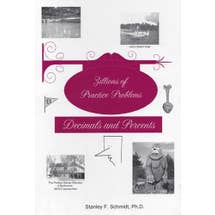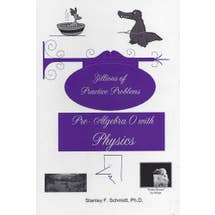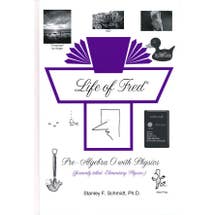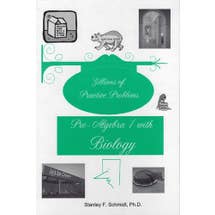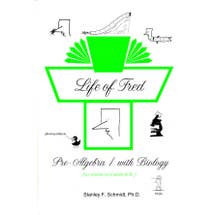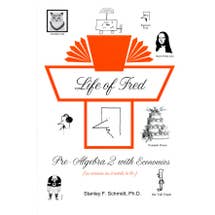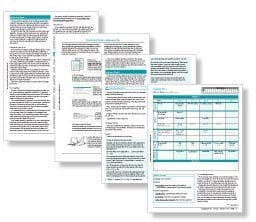We use cookies for performance, analytics and marketing. By using this site, you agree to our use of cookies. For more information, view our Cookie Notice and Privacy Policy.
Math for 7th Graders
What topics are included in math for seventh graders? And is your seventh grader on track with those math topics? Will your seventh grader be ready for eighth grade math? Find out what seventh grade math is like and how it’s best learned. Plus get product suggestions for both main curriculum and supplementary extras.
Seventh Grade Math Curriculum
Sonlight’s top picks for seventh grade math include these three time-tested and parent-approved programs. Read the descriptions below for more detail and to learn how each math curriculum is unique. Although all three are excellent curriculums, personal learning preferences can make one program outshine another when it comes to day-to-day use. If you’re unsure what program is best for you, contact an Advisor and use the placement tests.
Seventh Grade Saxon Math
Saxon Math 8/7 is a solid and complete math program for seventh graders. Usually a student can work independently with this curriculum. Each lesson includes warm up exercises that encourage the student to work on mental math and problem solving skills. The new concepts are presented in small chunks, ensuring understanding. The program then gives the student a chance to put the new skill into practice and ends with review problems.
The DIVE CD includes teaching of the lessons and worked-out example problems. Because Saxon 8/7 covers topics typically considered pre-algebra in most other programs, this level prepares your seventh grader to move on to algebra.
Seventh Grade Math-U-See
In the Math-U-See progression, seventh grade math is called Pre-algebra. The program continues its format from sixth grade with short video lessons designed to be watched together by both teacher and student. There is ample practice integrated into each lesson without the excess drill and kill of other math programs.
Using the unique to Math-U-See are the manipulatives used to introduce topics and provide mastery. There are two types of manipulatives used in this level:
Both of these hands-on kits can be bought individually or added to a Math-U-See Pre-Algebra Set using the customization options.
Seventh Grade RightStart Math
If your student needs a hands-on approach, RightStart Math is a great program that teaches mental math and mathematical reasoning.
If you’re shopping for a new curriculum that can carry you from seventh grade on, please realize that Level H (for seventh grade) is the highest level that RightStart Math publishes. For this reason, it’s not recommended to start RightStart Math at grade seven. However, RightStart Math may be just what you need to supplement a different math program that your child is struggling with.
RightStart Math Level H teaches pre-algebra and geometry concepts with the required manipulatives. Upon completion of Level H, your student will be ready for algebra.
Seventh Grade Math Worksheets
Get a preview of math for seventh grade with these free sample worksheets:
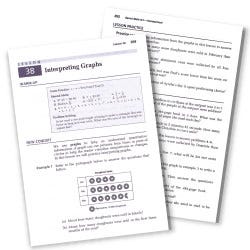

Saxon worksheets on interpreting graphs p. 1 and p. 2
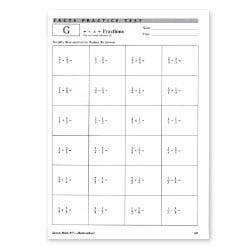

Saxon worksheet with practice adding, subtracting, multiplying and dividing fractions
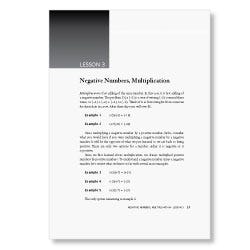

Math-U-See worksheet about multiplying negative numbers
Seventh Grade Math Lessons
Seventh grade math lessons include practice in adding, subtracting, multiplying, and dividing integers, fractions, and decimals. Students at this grade learn more about different ways to display data on graphs, solving equations for one unknown, solving ratios and proportions, indirect measurement, and more.
Charts of Key Seventh Grade Math Formulas
Geometric Formulas
Seventh Grade Conversion Factors
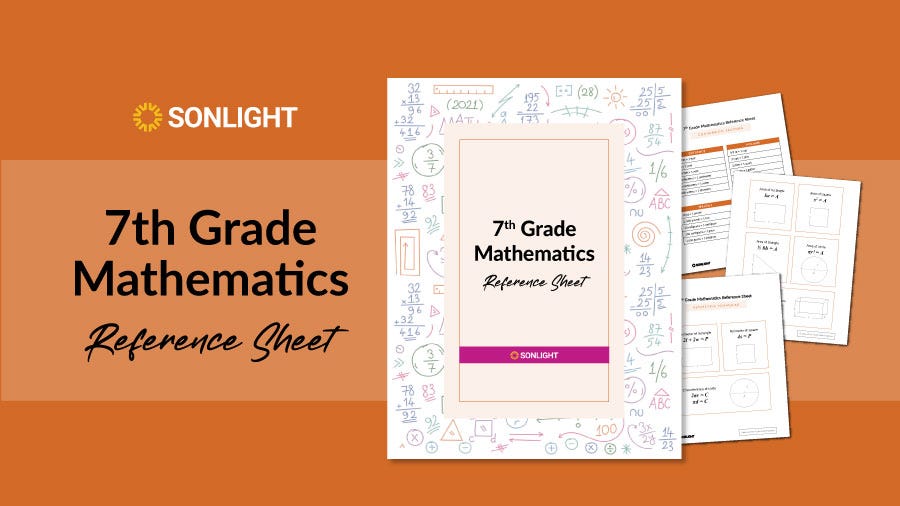

Seventh Grade Math Problems & Equations
Seventh graders learn how to work these kinds of math problems and equations:
- Converting fractions, decimals, and percentages and understanding how they are related.
- Using exponents and roots.
- Applying the commutative, associative, and distributive properties.
- Using scale factor and ratios to solve geometric problems.
- Applying principles of probability and statistics.
Seventh Grade Math Numbers & Operations
Seventh graders continue to sharpen critical thinking and problem solving skills that are necessary for eighth grade math and higher:
- Solving equations with missing factors.
- Using substitution as a method for finding the answer to equations.
- Comparing values of both positive and negative numbers.
- Evaluating complex expressions with multiple grouping symbols using the order of operations.
- Plotting data on numberlines and in the coordinate plane.
- Finding absolute value and least common multiple.
- Factoring and combining like terms.
- Graphing and solving proportions.
- Figuring area and circumference of circles.
- Constructing triangles.
- Figuring volume and surface area.
Seventh Grade Math Pre-algebra & Algebra
As your student solves variable equations using inverse operations, they are perfecting the skills that are necessary for success with algebra and beyond. Story problems (also called word problems) are especially useful to prepare your seventh grader for the multi-step thinking required to solve the more complex problems included in algebra, geometry, trigonometry, and calculus.
Seventh Grade Math Standards
Most states use Common Core standards but a few have their own state standards. Whether you are shopping for a seventh-grade curriculum or evaluating your student’s readiness for algebra, 7th grade math standards provide a valuable point of reference. Both Math-U-See and Saxon meet Common Core standards although they may be taught at different grade levels or in an alternative order.
Seventh Grade Math State Tests
Standardized tests can be a sticky topic. Seventh graders in public school are generally given a standardized test in accordance with the Every Student Succeeds Act of 2015. While the Act states that each state has liberty to design the test given, it also states that the test must be challenging.
There are some states that require homeschool students to be tested in seventh grade as well. Check with your state’s homeschooling organization or department of education to find out if this requirement applies to you. Some homeschool families choose to test even when it is not required since testing is a valid tool to measure what your child has learned.
If testing reveals that your student has gaps in their math knowledge base, don’t panic. Review the concepts that are causing problems with extra practice. For example, use the supplements from Life of Fred listed above, or provide remediation with a different (or additional) math program like Saxon Math, RightStart Math, or Math-U-See.
Seventh Grade Math Vocabulary
The following is list of the various terms and concepts a student will encounter in seventh grade math:
- Absolute Value
- Acute, Obtuse, and Right Angles/Triangles
- Addition Property of Equality, Subtraction Property of Equality
- Area, Perimeter, and Volume
- Bar Graph, Pie Chart, Dot Plot, Box and Whiskers Plot
- Base, Exponent
- Coordinate Plane, X-axis, Y-axis
- Coefficient, Variable, Like Terms, Constant
- Common Factor, Common Multiple
- Composite Number, Prime Number
- Denominator, Numerator, Equivalent Fractions
- Equation, Expression
- Equilateral, Isosceles, and Scalene Triangle
- Hypotenuse, Legs
- Integer
- Mean, Mode, Median, Range
- Parallel, Perpendicular
- Perfect Square, Square Root
- Proper Fraction, Improper Fraction, Mixed Number
- Ratio, Proportion
- Symmetry
- Terminating Decimal, Repeating Decimal
- Unit fraction, Unit Rate
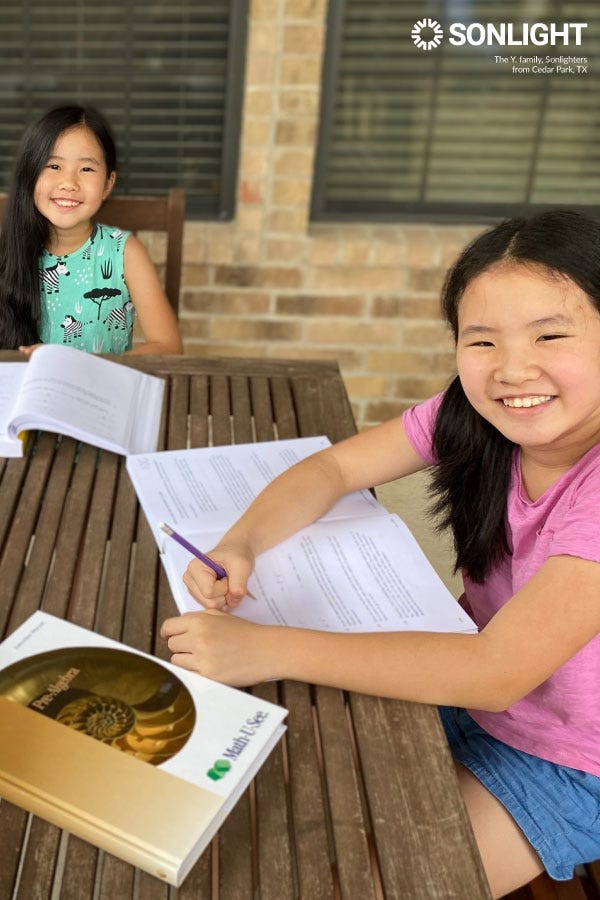

Seventh Grade Math Supplements
If you’re not in need of a complete math program you can still supplement your child's seventh grade math education with Life of Fred books. This quirky series follows Fred as he encounters math in his daily life. (See samples here and here.)
Life of Fred for Extra Practice with Fractions, Decimals, and Percents
Look at the basic skills of fractions, decimals, and percents through a new lens with this collection of Life of Fred titles.
Life of Fred for Pre-algebra
For the seventh grade math student who enjoys math and wants extra, consider the Life of Fred Pre-Algebra titles. These are great for enrichment, review, and simply approaching a familiar topic from a different angle.
In addition to broadening and sharpening your student’s math skills, Fred will teach them other important life skills in a fun and innovative way.
